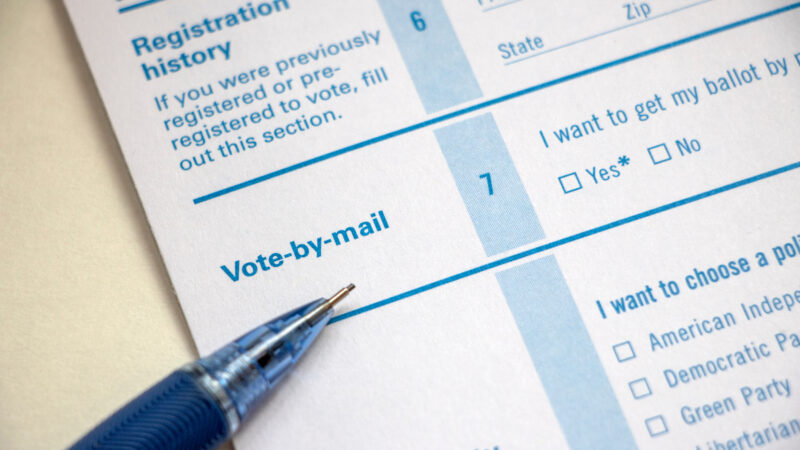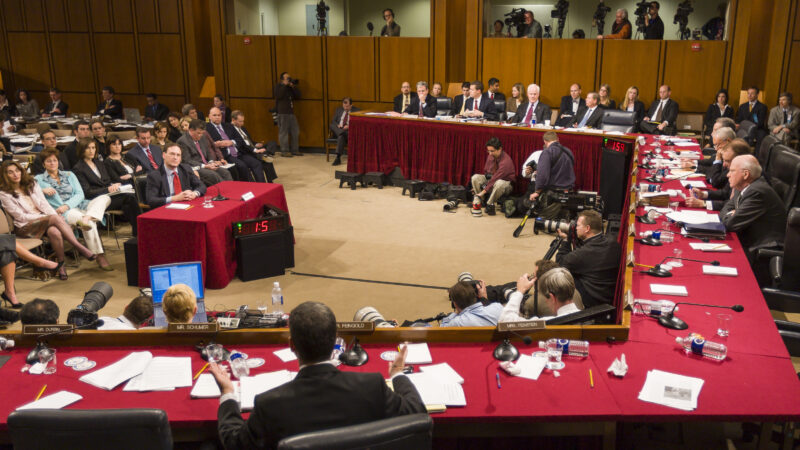New Report Debunks Mass Voter Challenge Efforts and Identifies Safeguards in Place to Prevent Abuse
- June 17, 2024
Report Finds Frivolous Voter Eligibility Challenges Burden Election Administrators, Undermine Confidence in Elections, and Intimidate Voters
Protect Democracy published Unraveling the Rise of Mass Voter Challenges, a new report that sheds light on the growth of mass challenges to voter eligibility orchestrated by election-denying organizations. The report examines the efforts of these organizations that abuse voter challenge laws to cast doubt on the integrity of voter rolls. These challenges typically lack any legitimate basis and are invalid under state law as well. Most will be rejected but they threaten to burden both voters who are wrongly accused of being ineligible as well as already-stretched election administrators.
These challenges are not just administrative nuisances; they are designed to erode public trust in the legitimacy of our elections and sow seeds of doubt in the outcomes slated for November.
As election offices grapple with high turnover rates and mounting financial constraints, the additional strain posed by mass challenges diverts critically needed resources, increasing the chance of errors in the electoral process. Moreover, these challenges can serve as vehicles for voter intimidation and discourage voter participation for fear of prosecution.
“The deceptive tactics and tools deployed by election-denying organizations to fuel mass voter challenges are both baseless and redundant,” said Clint Swift, co-author of the report and policy strategist with Protect Democracy. “These frivolous challenges serve only to sow doubt and disrupt our electoral process. They are not only illegal but also an assault on the very foundation of our democracy and must be rejected.”
Two of the most prominent of these organizations pushing for its members to challenge the eligibility of voters are Election Integrity Network and True the Vote. They have developed software programs—EagleAI and IV3—to facilitate mass challenges using flawed datasets. However, they lack the tools that election administrators use to effectively verify voter registration records.
“Courts, researchers, and election administrators have all roundly rejected the kinds of flawed methods employed by True the Vote and the Election Integrity Network with these programs,” said Orion Danjuma, co-author of the report and counsel with Protect Democracy. “It’s impossible to take these as good faith efforts to ‘clean the rolls.’ We must accept them for what they are; crude attempts to cast doubt on the integrity of our electoral process.”
While nearly all states have procedures allowing for voter challenges, the disparities in these processes underscore the need for reform. Factors such as who may submit challenges, when they may be submitted, and the reasoning behind a challenge create quite different processes and affect a state’s potential for receiving mass challenges. Protect Democracy’s report delves into these intricacies, exposes the systemic abuse of electoral processes, and highlights legal remedies to combat mass challenges.
To view a PDF of the report, click here.
Related Content
Join Us.
Building a stronger, more resilient democracy is possible, but we can’t do it alone. Become part of the fight today.
Donate
Sign Up for Updates Sign Up for Updates
Explore Careers Explore Careers
How to Protect Democracy How to Protect Democracy


